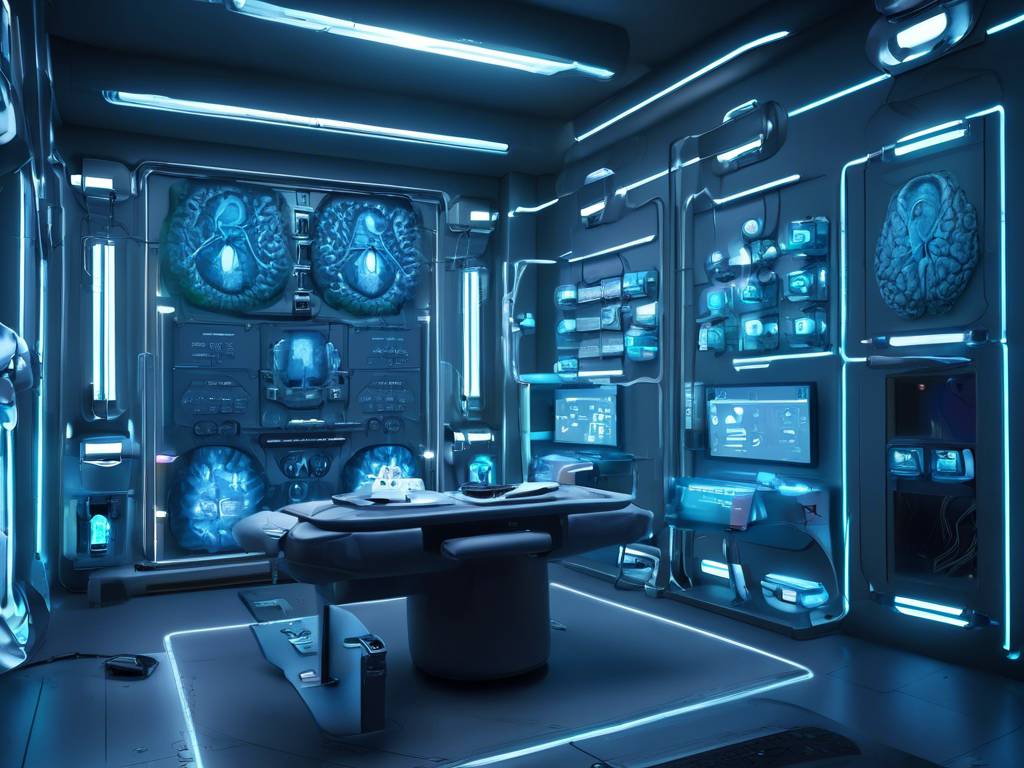Unveiling the World of Brain Computer Interfaces
Neuralink, founded by Elon Musk, made headlines by successfully implanting a chip in a human’s brain for the first time. The realm of brain computer interfaces (BCI) is rapidly evolving, offering hope for individuals with various medical conditions and disabilities. Let’s delve into the innovative technology behind two competing BCI implants and explore the journey towards making them accessible to consumers.
Introducing Innovative BCI Technology
BCIs like Neuralink aim to revolutionize the way humans interact with technology by bridging the gap between the brain and external devices. These implants have the potential to empower individuals with limited physical abilities to communicate and control devices using just their thoughts. Here’s a closer look at the intricacies of two cutting-edge BCI devices challenging the norms of traditional medical technology:
- Neuralink’s Invasiveness:
- Implanted directly onto or into the brain for enhanced data collection.
- Synchron’s Approach:
- Utilizes a stent inserted into a blood vessel on the brain’s surface.
- Less invasive than traditional brain surgery but may impact data acquisition.
Under the Hood: How Synchron’s Device Works
Synchron’s stent houses an array of electrodes that capture electrical signals corresponding to specific thoughts. These signals are transmitted to a chip implanted in the chest, which wirelessly communicates with a computer to interpret the commands. This technology enables users to control devices simply by thinking, offering a newfound sense of autonomy and independence.
- Successful Implantation:
- Synchron has conducted successful trials with permanent implants in ten patients.
- Patients report sensations comparable to those of a pacemaker.
Revolutionizing Neurological Research with Precision
Precision’s temporary electrode array is providing valuable insights into brain activity during specific movements. By monitoring brain signals in real-time, researchers can map out neural activity linked to motor functions, potentially paving the way for paralyzed individuals to control computers through thoughts alone. This groundbreaking research is propelling the field of BCIs forward, offering hope for enhanced quality of life for those with neurological impairments.
- Market Readiness:
- Devices must undergo FDA scrutiny for safety and efficacy before reaching consumers.
- Pivotal industry-wide acceptance is crucial for widespread adoption of BCI technology.
Shaping the Future of BCI Technology
As the landscape of BCIs continues to evolve, the potential applications of this technology are vast. Companies like Motif Neurotech are exploring minimal invasive BCI solutions to address mental health disorders such as depression, showcasing the versatility and adaptability of BCI technology. The road to mainstream adoption may be long, but the transformative impact of BCIs on healthcare and accessibility is undeniable.
Hot Take: Embracing the BCI Revolution
The realm of Brain Computer Interfaces is on the brink of a revolutionary transformation, offering hope and empowerment to individuals with neurological conditions. As technology continues to advance, the possibilities of BCIs are limitless, reshaping the way we interact with the world around us. Stay tuned as this innovative technology paves the way for a future where minds and machines seamlessly collaborate for the greater good.





 By
By
 By
By
 By
By
 By
By
 By
By
 By
By